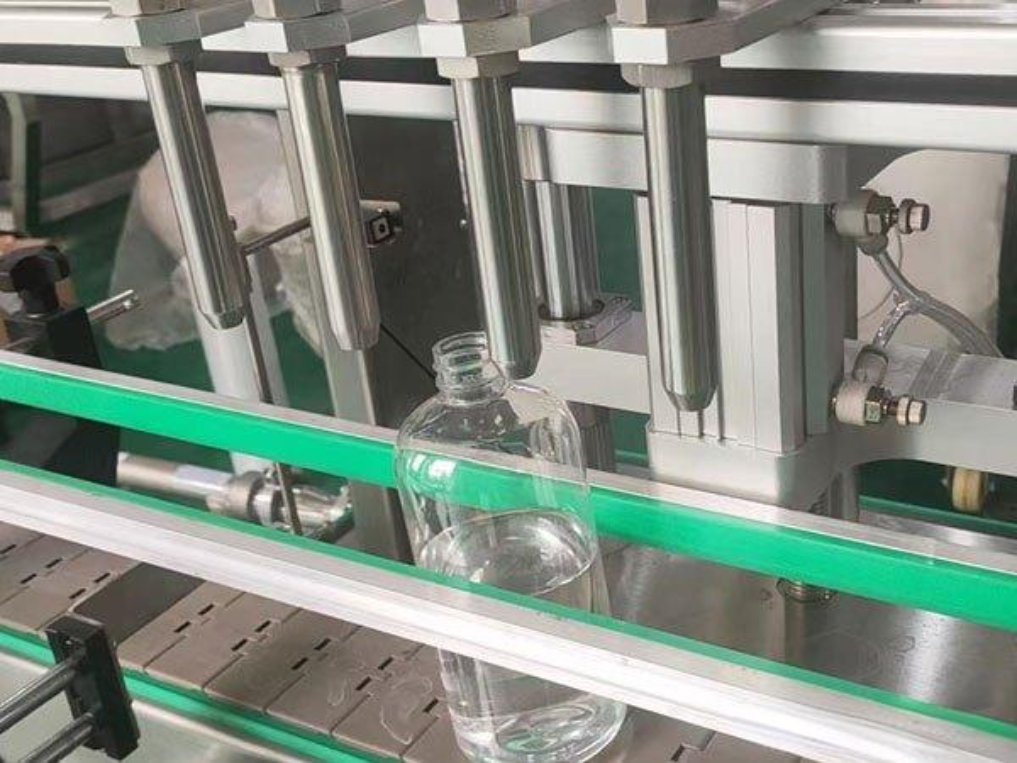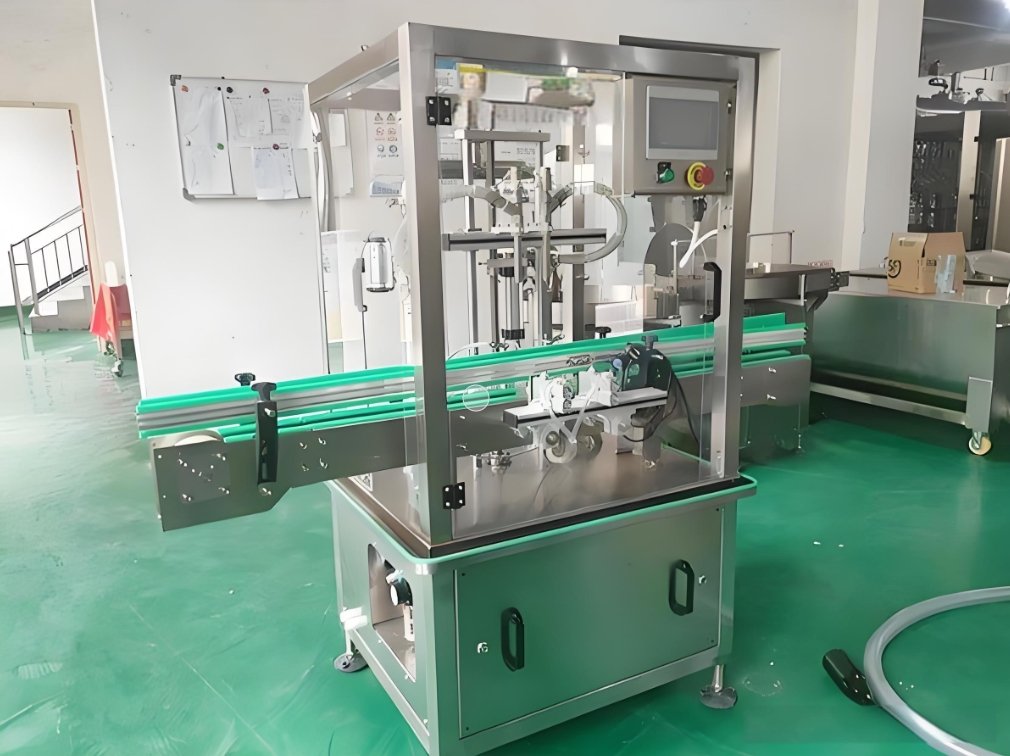
In the fast-paced world of product packaging, precision, speed, and consistency are everything. Whether you’re labeling bottles, jars, boxes, or pouches, one device has become essential—the Labeling Machine. From food to pharmaceuticals, cosmetics to chemicals, industries worldwide depend on Labeling Machines to apply accurate, clean, and fast labels. When used alongside an Automatic Filling Machine, the packaging process becomes even more efficient.
So what exactly is a Labeling Machine? And how does it fit into modern production lines?
In this article, we’ll break down everything you need to know: what a Labeling Machine does, how it works, the types available, and how it complements an Automatic Filling Machine to complete your packaging setup.
What Is a Labeling Machine?
A Labeling Machine is a mechanical system used to apply labels to products, containers, or packaging materials. These labels can be made of paper, film, or other materials and may contain text, barcodes, logos, and product information. A Labeling Machine ensures that each label is placed accurately and consistently.
In modern factories, this machine often works right after an Automatic Filling Machine in the packaging line. Once the container is filled—whether with liquid, powder, or capsules—the Labeling Machine adds the final touch with a branded or regulatory label.
How Does a Labeling Machine Work?
The working process of a Labeling Machine depends on its type and purpose, but the general mechanism involves several key steps:
1. Product Feeding
Products are moved along a conveyor belt and fed into the Labeling Machine one at a time. This step ensures even spacing and timing.
2. Label Unwinding and Sensing
Labels come on a roll. The machine unwinds the roll and uses sensors to detect the start and stop points of each label.
3. Label Application
Using pressure, brushes, rollers, or even air-blow systems, the label is applied to the container. The label must be stuck without wrinkles or misalignment.
4. Pressing or Rolling
After the label is applied, the product might pass through rollers to secure it tightly, ensuring it adheres well.
5. Verification and Ejection (Optional)
Advanced Labeling Machines include cameras or sensors to verify label position. If a label is missing or misaligned, the system can reject the product.
When this is integrated with an Automatic Filling Machine, the entire line moves like a synchronized system—fill, cap, label, and pack.
Why Labeling Matters
Labeling is not just about branding. It’s a legal and functional requirement. A Labeling Machine helps meet these goals:
- Ensure every product is properly identified
- Display nutritional facts, ingredients, or safety warnings
- Include barcodes for inventory and sales tracking
- Meet legal requirements for pharmaceuticals or food products
Combined with an Automatic Filling Machine, labeling ensures a professional and compliant finish to your packaged product.
Types of Labeling Machines
There are many types of Labeling Machines, each suited for a specific job. Choosing the right one depends on your container shape, label type, and production speed.
1. Wrap-Around Labeling Machine
Perfect for bottles and cylindrical containers. It wraps the label around the product’s surface.
2. Front and Back Labeling Machine
Applies labels on both sides of flat or oval-shaped bottles or boxes.
3. Top Labeling Machine
Places labels on the top surface of boxes, jars, trays, and other flat items.
4. Bottom Labeling Machine
Used for applying labels underneath packages or containers.
5. Double-Side Labeling Machine
Applies labels on both sides simultaneously and is often used in food, beverage, and cosmetic industries.
All of these machines can be positioned after an Automatic Filling Machine and capping station to create a seamless production line.
Integration with Automatic Filling Machine
In most modern factories, labeling doesn’t happen in isolation. It’s part of a larger packaging system. Typically, a container moves through the following stages:
- Filling – Done using an Automatic Filling Machine that fills the liquid, powder, or solid into the container.
- Capping – A capping machine seals the container.
- Labeling – The Labeling Machine applies the correct label.
- Packing – Containers are grouped, boxed, or shrink-wrapped for shipping.
When a Labeling Machine is synchronized with an Automatic Filling Machine, the result is a fully automated packaging line. This reduces errors, saves labor, and increases production speed.
Advantages of Using a Labeling Machine
✅ High Speed & Efficiency
Compared to manual labeling, a Labeling Machine is 10x faster and far more reliable.
✅ Accuracy
Labels are placed in the same position every time, which enhances product appearance and branding.
✅ Versatility
You can use a Labeling Machine with bottles, boxes, cans, tubes, and more. It’s suitable for many industries.
✅ Reduced Labor Costs
Automation minimizes the number of workers needed for packaging tasks.
✅ Scalability
As your business grows, you can upgrade your machine to handle higher volumes or integrate it with your Automatic Filling Machine for a complete line.
Industries That Use Labeling Machines
Almost every product-based industry can benefit from a Labeling Machine:
- Pharmaceuticals – For labeling pill bottles, capsules, and packages
- Food & Beverage – For labeling sauces, juices, snacks, and canned goods
- Cosmetics – For cream jars, tubes, and lotion bottles
- Household Products – For detergents, cleaners, and sprays
- Nutraceuticals – Works perfectly with containers filled using an Automatic Filling Machine
Each of these sectors depends on labeling for safety, branding, and compliance.
Tips for Choosing the Right Labeling Machine
When selecting a Labeling Machine, keep these factors in mind:
- Container Shape – Cylindrical, flat, or oval?
- Label Size & Material – Paper, film, transparent?
- Speed Requirement – How many products per minute?
- Integration – Will it work with your existing Automatic Filling Machine?
- Budget & ROI – Consider initial cost vs. labor savings
Always consult with a specialist to match your needs with the right equipment.
A Labeling Machine is a must-have in today’s competitive packaging world. It ensures your product looks professional, follows industry rules, and gets to market faster. When paired with an Automatic Filling Machine, it becomes a powerful component of your packaging line—one that saves time, labor, and money.
Whether you’re in pharmaceuticals, food, or cosmetics, a modern Labeling Machine will help you label products quickly, cleanly, and consistently. Don’t leave labeling to chance. Automate it and watch your productivity soar.



